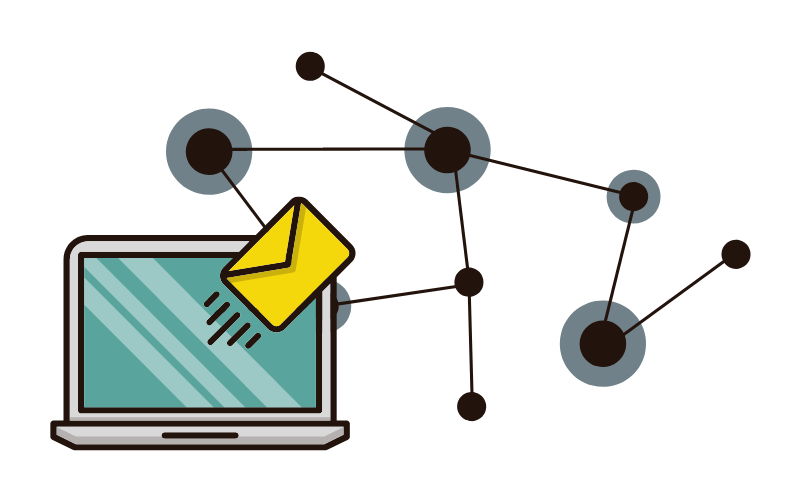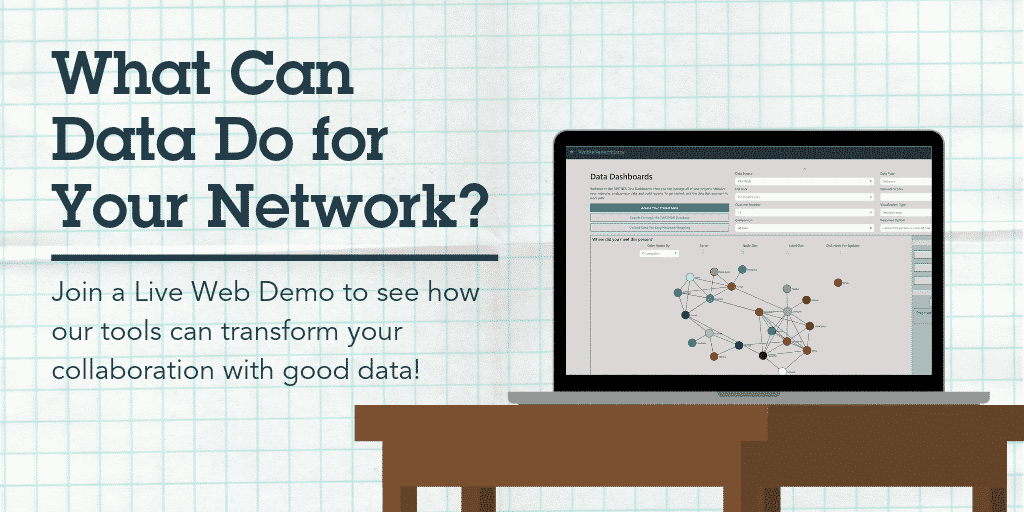In today’s digitally driven world, the allure of utilizing social media data or secondary sources like email interactions for mapping networks or ecosystems is undeniable.
However, at Visible Network Labs (VNL), we firmly believe in the power and efficacy of primary data collected using our built-in relational survey system, especially when it comes to social network analysis (SNA) through PARTNER CPRM.
This belief isn’t just a preference but is grounded in rigorous research and the inherent limitations present in social media and secondary data sources.
Table of Contents
What is Primary Survey Data?
Primary survey data is any information you collect yourself using a survey to gather relational data. For example, you can ask a professional colleague to check off all those they know from a list.
Primary survey data is contrasted with secondary data, which is collected by someone else for another study or purpose and is re-used for your study. While secondary data is sometimes easier to find, it is usually not a perfect fit for the analysis at hand and requires a lot of cleaning and re-organization to get it into a usable shape.
Primary survey data is customizable and ensures you have all the information you need to solve your challenges and answer your research questions.
The Limitations of Social Media Data

Many clients ask us if we can gather secondary social media data from sources like LinkedIn or Facebook and use them to map networks and ecosystems. This is much more difficult than it seems at first glance.
The chapter on Collecting Social Network Data from “The Palgrave Handbook of Survey Research” highlights significant challenges in leveraging social media data for network research. A major hurdle is the restricted access to user data by social media platforms.
Social Media Data is Difficult to Access
First, social media companies make it hard to access and download useful user data. This constraint not only makes the process labor-intensive but also significantly limits the scope of data that can be collected, particularly when compared to platforms like Twitter, where the data is sparse on individual user information.
Social Media Data is Incomplete and 2D
Additionally, social media data often fail to capture the full spectrum of a network. They are inherently biased towards users of the platform, potentially omitting key actors in a network who do not use social media. This limitation is crucial for studies aiming to understand broad social influences rather than just dynamics within social media spaces.

Get our monthly newsletter with resources for cross-sector collaboration, VNL recommended reading, and upcoming opportunities for engaged in the “network way of working.”
Primary Survey Data is Getting Easier and is Comprehensive
While social media data is difficult to access and often incomplete, survey data is getting easier to collect thanks to digital tools like the PARTNER CPRM Platform. It also provides a much more comprehensive understanding of your network, with more insights as well.
The Strength of Primary Survey Data

Contrary to the limitations of social media data, primary survey data, especially collected through tools like PARTNER CPRM, offers a comprehensive, ethical, and customizable approach to mapping and analyzing networks. Here’s why primary survey data leads to better insights and results:
Comprehensive Coverage and Scope
PARTNER CPRM is designed to capture the entire community ecosystem, not just a subset of individuals active on social media or those with whom email communications have been exchanged. This inclusivity ensures that no key player is left out of the analysis, providing a complete picture of the network dynamics.
Quality and Nature of Relationships
The relational survey system within PARTNER CPRM goes beyond merely identifying connections. It delves into the quality and characteristics of these relationships, providing insights into trust, value, and the nature of collaborations.
This depth of analysis is something social media and secondary data sources inherently lack, where connections are often superficially cataloged without understanding their significance.
Customization and Contextualization
Primary data collection allows for the customization of surveys to fit the unique goals and context of each organization’s network. This tailored approach ensures that the data collected is directly relevant and highly actionable, supporting strategic decision-making and optimization of community partnerships.
Ethical Considerations
Using primary survey data respects privacy and consent in a way that scraping social media data cannot guarantee. By designing surveys and collecting data directly from participants, PARTNER CPRM adheres to high ethical standards, ensuring participants are aware of and consent to how their data is being used and making it easy to give dashboards and profiles back to the community
Longitudinal Tracking over Time

Collecting survey data at multiple points over time using the same set of questions and the same set of respondents allows you to visualize changes as your network evolves. This type of longitudinal data is much harder to find in social media where users often come and go and engagement changes due to outside factors beyond your control. This makes survey research a better way to track network changes over time.
Conclusion: Using Primary Survey Data for SNA
While the digital footprint left by social media and email interactions offers tantalizing shortcuts for network mapping, these methods fall short of providing the depth, breadth, and quality of insights that primary survey data can.
PARTNER CPRM’s reliance on primary data, underpinned by network science, ensures a comprehensive, ethical, and tailored approach to understanding community ecosystems. In turn, this approach empowers organizations to foster collaboration, drive meaningful impact, and navigate community dynamics with unparalleled precision and insight.
Learn More: Request a Demo!

Ready to take the next step? Meet with a network science expert from our data science team to see the platform yourself. They can share some use case examples and learn more about your needs to discuss how it may address your challenges.
FAQ
Q: How does PARTNER CPRM handle data privacy and consent?
A: PARTNER CPRM is designed with privacy and consent at its core. We ensure that all survey participants are fully informed and consent to how their data is used with a built-in consent system for every survey, aligning with our commitment to ethical data practices. There are also significant controls to manage data visibility and grant a variety of different viewer permission levels.
Q: Can PARTNER CPRM be customized for any industry?
A: Absolutely. Whether you’re in public health, philanthropy, or community organizing, PARTNER CPRM’s survey tools and network analysis can be tailored to meet your unique needs and challenges. We work with organizations in across the public, private, and nonprofit sectors on a variety of focus areas and issues.
Q: What makes primary survey data more valuable than social media data for network analysis?
A: Primary survey data offers a comprehensive, accurate, and ethically collected insight into network dynamics, including the quality of relationships and the evolution of networks over time—details that are often missed or inaccessible through social media data.
Q: How does VNL support organizations in using PARTNER CPRM?
A: VNL offers a range of support options, from self-guided packages to hands-on enterprise solutions. Our team is dedicated to helping you design your surveys, analyze your data, and maximize the platform’s impact on your network analysis efforts. We provide all users access to our Knowledge Base with more than 80 articles, video tutorials, and infographics to help you implement and use the platform.
Q: Can PARTNER CPRM track changes in a network over time?
A: Yes, one of PARTNER CPRM’s strengths is its ability to conduct longitudinal studies by capturing relational data at mutliple points in time. This powerful features allows organizations to visualize and analyze how their networks evolve, helping to strategize and adapt to changes effectively.






